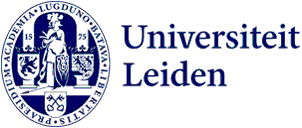23 search results for “hoe sapiens” in the Staff website
-
Wanted: Dutch speaking PhD candidates without stage fright for the Hoe?Zo! Show
Research
-
Verderkijkers: hoe zie jij studeren in 2075?
Wat zie jij als je verderkijkt? Hoe ziet studeren aan de Universiteit Leiden in 2075 eruit? We nodigen je uit om mee te doen met Verderkijkers.
-
Mensenrechten overal anders geïnterpreteerd. Hoe kan dat?
Hoe kan het dat universele mensenrechten wereldwijd niet hetzelfde in de praktijk worden gebracht?
-
Optimalisering: hoe fundamenteler hoe beter
Inaugural lecture
-
Hoe ontstonden handelsnetwerken in het derde millennium voor Christus?
Grondstoffen werden vroeger over duizenden kilometers afstand vervoerd. Waarvoor werden ze geruild en waarom sloten mensen in West-Azië zich aan bij deze handelsnetwerken?
-
50 jaar MRI: Hoe het LUMC dit betaalbaar maakt
50 years ago Lauterbur published the basic principle of MRI. Sine then MRI has become more expensive. Professor Andrew Webb describes what is needed to make MRI available for everybody.
-
Hoe gaan we om met oplopende spanningen? ‘De keuze is: vechten of praten’
‘A Muslim and a Jew in the house of God.’ This is how historian Nadia Bouras introduced her recent conversation with colleague Sara Polak in Leiden’s Hooglandse Kerk. They discussed the rising tensions since the outbreak of the Israel-Hamas war. ‘Dare to ask each other questions.’
-
Collegecolumn: Cyberveiligheid is een verantwoordelijkheid van ons allemaal, maar hoe doen we dat?
Het zal niemand ontgaan zijn dat de digitale dreigingen blijven toenemen. Uit monitoring door onze cybersecurity-experts blijkt dat er continu wordt geprobeerd om ook onze systemen binnen te dringen. Wat doen wij daartegen en hoe kan jij als medewerker bijdragen aan onze cyberveiligheid?
-
 Mariska Kret
Mariska KretSocial & Behavioural Sciences
m.e.kret@fsw.leidenuniv.nl | +31 71 527 6359
-
De dag van Jasper
Jasper Knoester startte op 1 januari als onze nieuwe decaan. Hoe gaat het met hem, wat doet hij precies en hoe ziet zijn dag eruit? In elke nieuwsbrief geeft Jasper een inkijkje in zijn leven als decaan.
-
First photo of black hole at the heart of our Galaxy
Finally we know for sure that there is a black hole at the centre of our own galaxy. Today, astronomers unveiled the first ever photo of Sagittarius A*, a super-massive object at the centre of the Milky Way. This picture could only be taken thanks to the cooperation of telescopes worldwide.
-
De dag van Jasper
Jasper Knoester is de decaan van de Faculteit Wiskunde & Natuurwetenschappen. Hoe gaat het met hem, wat doet hij precies en hoe ziet zijn dag eruit? In elke nieuwsbrief geeft Jasper een inkijkje in zijn leven.
-
Ionica Smeets wins Iris Medal 2023
The winner of this year’s Iris Medal for Excellent Science Communication is Professor of Science Communication Ionica Smeets.
-
Award of 33 Kiem grants for new interdisciplinary initiatives
No fewer than 55 applications were submitted for a Kiem seed grant, an initiative for developing new interdisciplinary, interfaculty research partnerships and encounters. The draw took place on Monday for the allocation of 22 seed grants. The Executive Board was so impressed with the number of applications…
- FSW Education Fair 2024
-
What do complex molecules tell us about star formation?
How do you progress from an immense gas cloud somewhere in the universe to a star with planets? Research by Astronomy PhD student Martijn van Gelder sheds more light on the earliest phases of this process. He will receive his doctorate on November 24th.
-
Lights off, sound on: Leiden University opens artificial river to study fish migration
On 16 June, Leiden University opens the MIGRADROME: a unique, seven-metre-long artificial river. Researchers will use it to study how light and sound affect migratory fish. ‘We’re recreating a real river, but under fully controlled conditions.’
-
Many playgrounds unsuitable for children with autism
Playgrounds often fail to accommodate children with autism, according to researchers Carolien Rieffe and colleagues. They have published an essay offering practical advice on how to make all children feel safe and welcome for Autism Week (Dutch) and World Autism Autism Awareness/ Acceptance Day on 2…
-
Ready for Quantum?! (in Dutch)
Lecture, NGL-lezing
-
Kaiser Spring Lectures: De geologie van het zonnestelsel: de prachtige planetaire paralellen van tastbare gesteenten en inspirerende landschappen
Lecture
-
Leiden University Academy Week
Study information
-
Staff symposium on student well-being 'Today's Students'
Conference
-
Activities
On this page you will find an overview of the activities organised by the Leiden Research Support Network.
